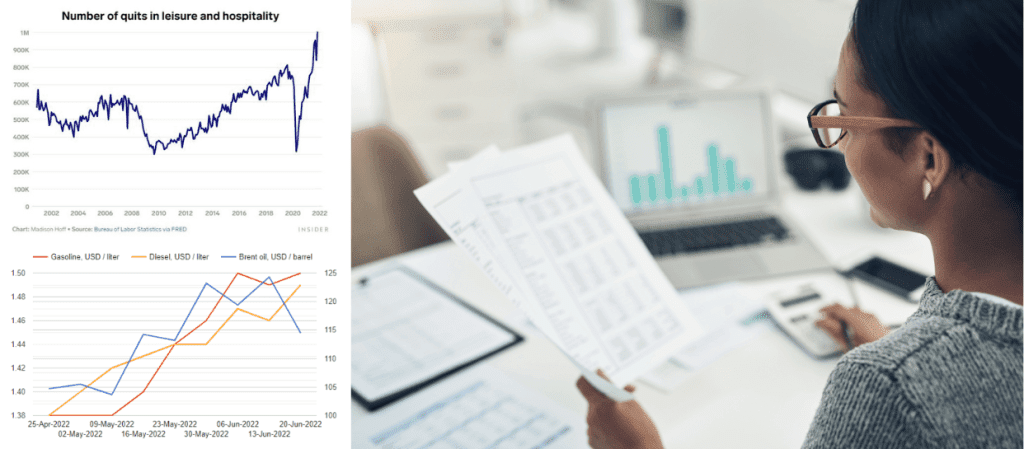
Context
The global effects of the pandemic and the ongoing Russo-Ukrainian war extend to but are not limited to consequences such as:
- The Great Resignation, which has caused a massive loss of employees across several industries.
- Hyperinflation, or the rapid growth of inflation rates across countries.
- The increase on fuel prices due to Russia being the energy provider to many nations who have entered a complex debate regarding their commercial relationships with this country.
- Rising interest rates have been announced and already implemented by many of the major central banks of the world.
- The global food crisis that we are starting to experience considering the core role that Ukraine plays in the production and distribution of agrochemicals and wheat.
General prices increase
Within the meetings industry, there is a general rise in operational costs. Some of our partners have reached out to us with price increase notices:
“Like many other businesses both within and beyond our own industry we are fighting to balance the severely rising costs on goods and energy supplies stemming directly from the logistic and economic reverberations of both the pandemic and the war in Ukraine. Still having to maintain a sustainable business and never wanting to compromise on the level of quality rightfully expected from our venue and team, we can no longer avoid a price increase, which will in turn affect our customers.
We have been forced to align our prices on supplies to match the current market situation. This will be applicable to all events from July 1st, 2022.”
Talent shortage
The post-pandemic effects, including the future of work trends, have a massive impact on the leisure and hospitality industry. The Great Resignation affected the operations of airlines, venues, and hotels, altering the prices and pace of our core business as event planners.

Adapting to uncertainties
At Kenes Group we continue to put people first by focusing on employee well-being, offering hybrid work mode and upskilling, and career growth opportunities. By doing so, we also exercise our adaptability to tackle the difficulties to forecast attendance and engagement in events.
We are currently working in more agile cycles of three months on average. Our Procurement and Finance teams are focused on guaranteeing the best possible negotiations, and we continue to deliver the quality that we stand for.
Empowering knowledge is what drives us. We strive to enable knowledge exchange and we put our expertise and know-how at the service of this purpose, always with the interests of our partners and colleagues in mind.
By Limor Cunia, VP Clients & Operations